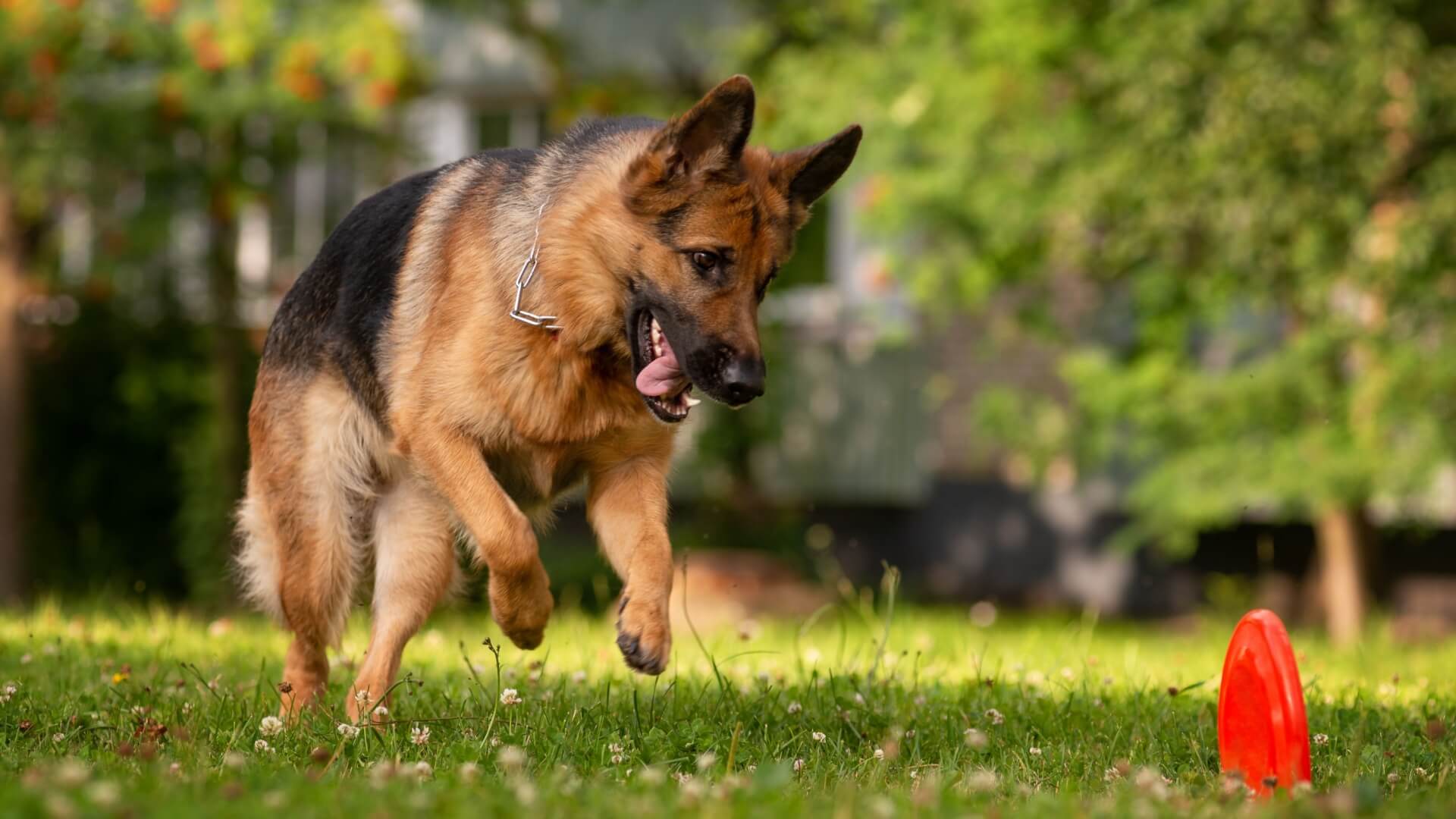April 23, 2024
Is Your Favorite Dog Breed Prone to Anxiety?
Experienced dog owners might be familiar with the telltale signs of anxiety in their furry friend. Things like pacing, panting, trembling, or even destructive behavior, can be signs of stress when done in correlation with each other. But did you know that certain dog breeds are more prone to anxiety than others?
Gladiator K-Nine will detail which breeds are more susceptible to developing anxiety, and discuss strategies for managing your dog’s stress. One strategy includes the use of Gladiator K-Nine’s anxiety-reducing dog collar.
What is Dog Anxiety?
Dog anxiety is a common issue that can manifest in various ways. Some common symptoms include:
- Excessive barking or whining
- Pacing or restlessness
- Trembling or shaking
- Destructive behavior (chewing, digging, etc.)
- Attempts to escape
- Changes in appetite
Some of these symptoms are not always symptoms of anxiety. For example, some dogs enjoy chewing on things, particularly when they’re puppies. Other dogs are hyperactive so they try to escape the yard or whine excessively for you to play with them. These are symptoms of anxiety when they are not already normal behaviors for your dog.
Dog Breeds Prone to Anxiety
While any dog can experience anxiety, certain breeds are known to be more susceptible. These include:
- German Shepherd: Known for their intelligence and loyalty, German Shepherds can also be prone to separation anxiety and fearfulness.
- Labrador Retriever: Despite their friendly nature, Labradors can be sensitive to environmental changes and develop anxiety.
- Border Collie: The high intelligence and energy levels of Border Collies can contribute to anxiety if their needs for mental stimulation and exercise aren’t met.
- Bichon Frise: This small, affectionate breed can be prone to separation anxiety and may become distressed when left alone.
- Cocker Spaniel: Cocker Spaniels are known for their gentle nature but can be sensitive to loud noises and develop anxiety in response to stressful situations.
A common theme among these dogs is that they are known for their intelligence and ability to perform complicated tasks, particularly the Border Collie, Labrador Retriever, and the German Shepherd.
Factors Contributing to Anxiety in Dogs
Several factors can contribute to the development of anxiety in dogs, including:
- Environmental factors: Changes in routine, loud noises, or a lack of socialization can all contribute to anxiety.
- Genetics: Some breeds may be predisposed to anxiety due to their genetic makeup. Anxiety is far more common in purebreds. Mixing a typically anxious breed with a non-anxious breed can reduce a dog’s chances of developing anxiety.
- Past experiences: Traumatic events or a lack of early socialization can lead to anxiety later in life.
Strategies for Managing Dog Anxiety
If your dog struggles with anxiety, there are several strategies you can employ to help them feel more at ease:
- Create a calming environment: Provide a quiet, comfortable space for your dog to retreat to when feeling anxious.
- Implement training techniques: Positive reinforcement training can help build your dog’s confidence and provide a sense of structure and predictability.
- Ensure adequate exercise and mental stimulation: Regular and engaging exercise can help reduce stress and anxiety in dogs.
- Consider anti-anxiety products: Products like the K-Nine Collar™, which uses far infrared technology, can help alleviate anxiety symptoms in dogs.
Calm Dog Breeds
If you’re considering adding a new dog to your family and want to minimize the risk of anxiety, there are several breeds known for their calm, stable temperaments. These include:
- Golden Retrievers
- Greyhounds
- Basset Hounds
- Cavalier King Charles Spaniels
- Bernese Mountain Dogs
While these breeds are generally less prone to anxiety, it’s important to remember that individual dogs within any breed can still experience stress and anxiety. Your breed of choice is only reducing the chances.
Contact Gladiator K-Nine for More Information About Our Anxiety-Reducing Collar
Understanding and addressing your dog’s anxiety is crucial to being a responsible pet owner. By recognizing the signs, implementing management strategies, and considering tools like the K-Nine Collar™, you can help your furry friend live a happier, more relaxed life.
If you have questions or want to learn more about the anxiety-reducing benefits of Gladiator K-Nine collars, don’t hesitate to reach out. We’re here to help you and your dog navigate the challenges of anxiety together.



